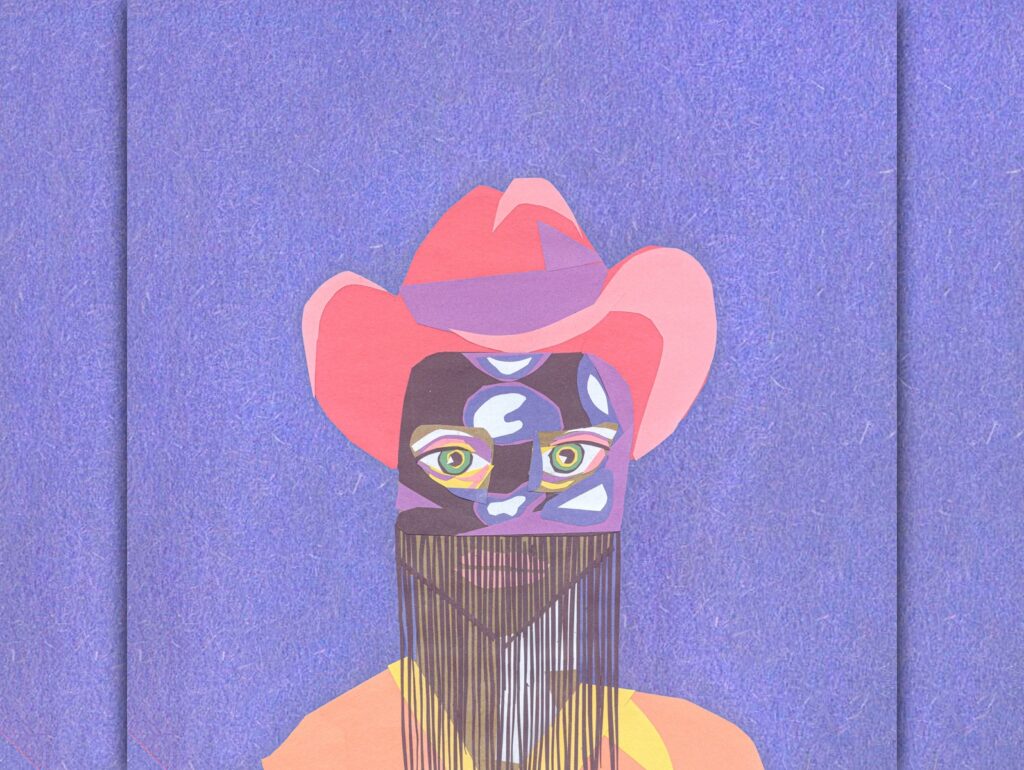“Show Pony,” Orville Peck
By James Barker, Contributing Writer

Wrapped in mystery, in a mask that was part fetish gear, part highwayman, Orville Peck burst onto the scene in 2019 as the gay country star we’d always wanted. His album “Pony” combined rock with a countrier-than-country-radio kind of country that was exciting, sexy and moving. When I first heard Peck’s voice I was taken aback by its dazzling power; it perfectly conveyed sense of loneliness, desire, loss and freedom. All of these are there in abundance in his latest EP, “Show Pony.”
When ‘Summertime’ debuted in late Spring, Peck’s melancholy tones crooning over the line ‘I miss summertime’ gave me chills, the more poignant as we’re all stuck in our houses. As the song starts in a downbeat seduction, singing of memories, old dreams and a sense of things slipping away, ‘Something inside me dies’ captures effortlessly the strange thought spirals many of us have as we grow up and grow older. Then it steps up a gear with ‘Keep on rocking’ as the song (and video) burst into life. In the way that Peck does so well, ‘Summertime’ dares us to dream and escape from the drudgery of daily life into a queer sonic daze.
The EP is firmly rooted in a neotraditional country sound, with Peck’s characteristically deep and dynamic voice sounding better than ever. His country storytelling has also developed. ‘No Glory in the West’ presents a nihilist vision of living day-to-day trying to find a glory that in the end does not exist, and with nothing else to do but ‘hit the road’ again and again. ‘Drive Me, Crazy’ perfectly embodies the experience of remaining enraptured in the desire of a relationship that has long since ended. In ‘Kids,’ Peck sings of the disconnection from feeling different during childhood — ‘never really felt this world’ — with the morbid, yet strangely life-affirming, surprise that ‘neither one of us has died.’
These songs resonate not only with queer experiences, but within country music’s traditions of struggle, in terms of poverty and suffering, but also a moral struggle within the uncertainty of what is the right road to travel. Whereas some of the ballads on “Pony” bordered on a pastiche of traditional country, here Peck sounds completely at home in his own country aesthetic.
That’s not to say that the aspects that made “Pony” so thrilling are missing here. Peck’s embrace of anthemic camp reaches its glorious peak on ‘Legends Never Die’ featuring the one and only Shania Twain. As they sing ‘You got nothing if you ain’t got pride,’ country achieves an explicit Pride anthem. This song brings together the worlds of Pride, traditional country, and country pop. Whatever your queerness, whatever your kind of country, there is a place for you.
Peck confidently asserts his place in country throughout the EP, and most clearly on what may be “Show Pony’s” greatest moment: the final song, a cover of the Bobbie Gentry classic ‘Fancy’. ‘Fancy’ is a testament to country music’s storytelling and ability to approach challenging subject matter. The song’s narrative describes how poverty forces a mother to push her daughter on turning 18 into sex work: ‘just be nice to the gentlemen, Fancy, and they’ll be nice to you!’ The song is a gothic rags-to-riches tale and a blistering class critique of those ‘self-righteous hypocrites’ who would cast aspersions on both Fancy and her mother.
I always considered ‘Fancy’ to be country music’s answer to the Sondheim musical Gypsy, so a queer version of this song has been long overdue! Peck’s play with gender in this song is interesting. Peck refers to the song’s protagonist as a boy but his version of ‘Fancy’ retains all the other references to ‘woman’ and ‘lady.’
This brings drag into the story and a new dimension to Fancy’s performance and self-discovery. Yet Peck’s dark vocal delivery and the narrative’s references to poverty and sex work remain. This is not the same old heterosexual ‘Fancy’ but this is not a respectable feel-good pride anthem either. Country music’s proud history of class critique is brought together with a queering of gender and sexuality. Queer country like this opens doors and possibilities within both country music and queer culture.
As much as I would have loved a full album, “Show Pony” develops Orville Peck’s artistic vision that anticipates an extraordinary future for both him and his listeners. Who knows where this road will take us, but what is clear is that the world of country music and the possibilities for LGBTQ+ people are more open than they’ve even been before.